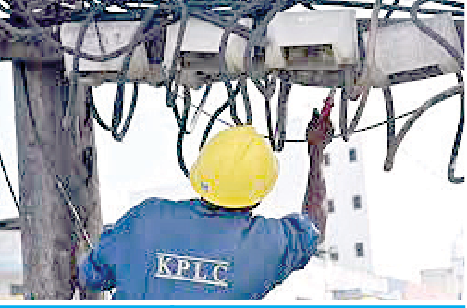KP inflates bills by Sh6b in revenue recovery plan
By Herald Aloo, November 30, 2023Kenya Power passed some Sh6.07 billion illegal charges to consumers in fuel cost fees in the period ending June 2023 as part of attempts to recover previously lost revenue and generate some in advance.
KP’s action set up businesses and individuals to expensive power bills at a time when consumers are already battling the high cost of living caused by high energy prices and currency depreciation.
The audited annual report of the power distributor shows there was a mismatch between the passthrough costs and the revenues it recovered in regard to fuel costs customers were charged in that period.
Fuel cost charge (FCC), which is the actual cost of generating power excluding other things like inflation and taxes, makes the biggest component of end users’ electricity tariff and can fluctuate depending on the crude oil prices.
Since fuel costs are directly passed to electricity consumers, they should ideally match the corresponding revenue recoveries by the power utility.
However, during the period ending June 2023, Kenya Power reported fuel costs worth Sh28.09 billion as indicated under cost of sale against Sh34.16 billion it recovered from its over 9.2 million customers.
This means FCC paid by electricity consumers was inflated by 21.6 per cent or Sh6.07 billion cumulatively, a strange increase which has since been flagged by Auditor General Nancy Gathungu. In its defence, Kenya Power says that the mismatch in costs vis-à-vis revenue collected was occasioned by a recovery mechanism for future temporary power plants, geothermal steam charge, and costs of other power plants.
“In the circumstances, the legality of inclusion of these non-related charges in the fuel cost change in fuel cost recoveries could not be confirmed,” chief auditor Nancy Gathungu said in the report.
Power purchase costs
The utility further notes the variances between costs and revenues resulting from computed and the applied FCC in the previous year of 2021/22 could have equally led to the mismatch, indicating that consumers paid for the errors in the year ending June 2023.
In addition to this, power purchase costs that had not been factored in the approved base or non-fuel tariffs issued in 2018 were also considered by Kenya Power, partly explaining the overshoot in the FFC recoveries during the period.
Energy and Petroleum Regulatory Authority (EPRA) had in November 2018 slashed power tariffs for users whose consumption fell below 100 units from Sh15.8 to Sh10 but this lasted for just seven months until July 2019. It, however, took Kenya Power a year to get a regulatory nod to revert to the hiked tariff before the 2018 cut.
The current electricity tariff became effective in April 2023, which has left domestic consumers paying about Sh28 per unit of electricity, up from Sh26 in December.
However, unlike the previous practice, Kenya Power does not give a detailed breakdown of the costs. This makes it hard for consumers to assess all the pass-through items and corresponding costs despite pressure to have the utility reinstate the breakdown.
Kenya Power CEO Joseph Siror, has previously defended this decision, noting it was necessitated by an internal study which showed that customers disliked the clustered messages of the transaction breakdown.
Power purchase costs
At the moment, Kenya Power only shows customers the tokens code, metre number, purchase date, units received, money used on the tokens, and money spent on what it summarises as “other charges,” which takes almost half of the total amount spent.
Transaction breakdowns on items like inflation, FCC, forex charge, value-added tax (VAT), and other charges by various regulatory bodies are currently not included.
The illegal Sh6.07 billion extra charges come at a time when Kenya Power has already gotten another EPRA approval to recover another Sh6.5 billion in revenues it lost when President William Ruto’s government offered a temporary tariff cut extension months after ascending to office.
“This amount has now been confirmed by Epra and is scheduled to be recovered through pass-through mechanisms,” says the utility in the annual report.
